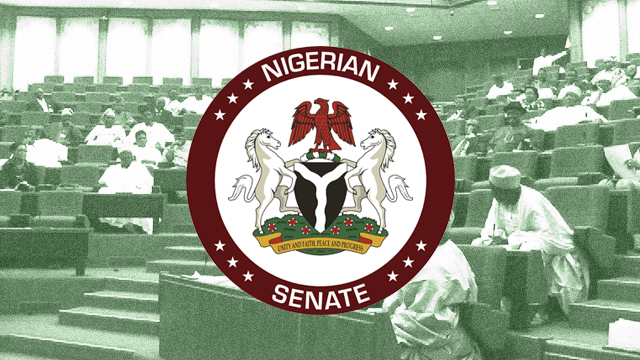SEVEN of the bills rejected by President Muhammadu Buhari were yesterday reconsidered and passed by the Senate.
The development came as the upper chamber initiated moves to override of the President on the Fourth Alteration Bill No.28.
The Senate said the bills were reconsidered and passed in line with legislative procedures.
President Buhari, in his letter of rejection, raised concerns about the constitutionality of the bills if passed into law.
The President requested the Senate in the letters to consider the issues raised for their rejection and reconsider the bills.
Passed are the re-drafted version of the Independent National Electoral Commission (INEC) Act 2010 (Amendment) Bill 2019; Petroleum Industry Governance, Bill, 2019 and five others.
Also passed are: National Institute for Hospitality and Tourism Bill; National Research and Innovation Council Bill; Stamp Duties Act (Amendment) Bill; National Agricultural Seed Council Bill and Agricultural Credit Guarantee Scheme Fund (Amendment) Bill.
Following the President’s refusal to assent to the afore-listed Bills, the Senate set-up a seven-member technical committee, headed by Senator David Umaru, Chairman, Senate Committee on Judiciary and Legal Matters, to look into the constitutional and legal implications of withholding of assent to the bills by the President and to make appropriate recommendations on the way forward.
The committee reviewed six constitutional amendment bills and 11 private member bills.
In its 34-page report, the committee recommended that the Senate should re-consider and pass again 11 bills, including the five Constitutional Amendment bills; it should override the President’s veto on a Constitutional Amendment Bill, and the Industrial Development (Income Tax Relief) Amendment Bill, 2018; and that the Senate should entirely withdraw four other Bills.
Senate President Bukola Saraki directed the Senate secretariat to take note of the observations and corrections made by senators and ensure that they were reflected in the bills before transmitting them to the President for assent.
On Tuesday, the Senate included in its Order Paper, two bills earmarked for override.
The two bills were not considered at the end of plenary. No explanation was given by Senate Leader Ahmad Lawan, on why they were not considered.
The two affected bills slated for override, but not considered are: Fourth Alteration Bill No. 28, and the Industrial Development (Income Tax Relief) Amendment Bill.
The upper chamber relisted the Fourth Alteration Bill No. 28 and the Industrial Development (Income Tax Relief) Amendment Bill yesterday. Both passed second reading.
The second reading of the bills was the second stage of the override process.
If the bills pass the third reading with the required two-third majority (73 senators) and secure the concurrence of the House of Representatives, the two bills will become a law.
The Forth Alteration No. 28 Bill is a constitution amendment, which seeks to provide for the time within which the President or Governor shall lay the Appropriation Bill before the National or State Assembly.
The bill also seeks to encourage early presentation and passage of Appropriation Bills.
President Buhari declined assent to the bill on the grounds that it did not take cognisance of the provisions of Section 58(4) of the 1999 Constitution, as amended.
On the other hand, Industrial Development Amendment Bill, if passed, will enable companies to expand their operations in pioneer industry or product to apply for a new pioneer status.
President Buhari declined assent to the bill on the grounds that ongoing inter-ministerial consultations would be affected if the bill was signed into law.
The Nation



Comments are closed, but trackbacks and pingbacks are open.